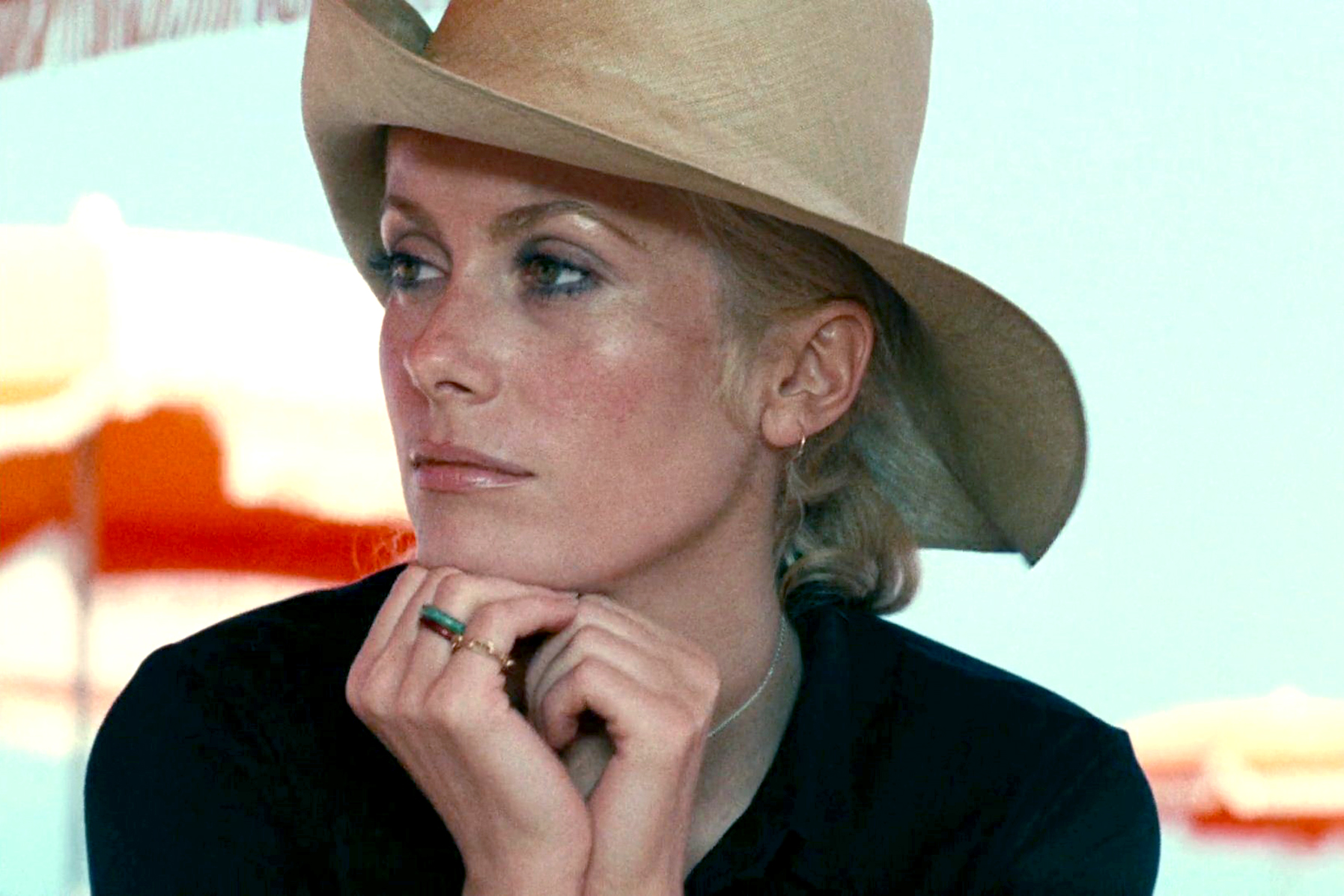
The French expression battre la chamade now refers to the quickened pulse of lovers before they give into sex. But the term was originally imported from the battlefield, where it was the special drumroll used to concede to the enemy. The military connotations still linger in its current usage, suggesting that for all love’s sweetness, it is also war. To be seduced is to capitulate, to let in; when the verb is active, a conquest is implied. The French specialization in romantic equipment can be explained, in part, because those elaborately crafted chocolates, bouquets, and lingerie are just as much weapons as they are gifts.
Catherine Deneuve has made a fifty-plus year career out of soliciting la chamade from others. At the age of twenty-two with her role in The Umbrellas of Cherbourg (1964), she earned the reputation of the most beautiful woman in the world, a role she cited well into her fifties as one she felt pressure to perform. The French press would alternately describe Deneuve as the “glacial” or “frigid” blonde. Unlike most starlets of the era, she did not run around at Cannes in a bikini, and avoided run-ins with the paparazzi, her allure enclosed in secrecy and discretion.
She is now infamous, of course, for the petition she signed that has since taken her name, the “Deneuve letter,” published in Le Monde on January 9 of this year. The hundred women who endorsed it claimed that the #MeToo movement had gone too far, becoming puritanical in its policing of desire. Freedom (liberté) is the word that shows up the most frequently in the text, eleven times, one of them being the ominous-sounding “freedom to bother.” Several of these women, including its authors, Catherine Millet and Abnousse Shalmani, are apologists for the Marqius de Sade. Their reproach stems from a belief in the lawlessness of sex, its link to the imagination and artistic license.
In the time that has since passed, the #MeToo movement has undergone schisms, oppositions, and metamorphoses, but this critique still feels the sharpest, perhaps because it was the first. It received flack from both French women of a younger generation (most of the signees are successfully mid-to-late career) and feminists in the Anglo-American tradition, outraged by the conservative embrace of gallantry at a moment when women were just learning how to speak out against it. Deneuve’s face—heavily made up on the red carpet with her signature fur and leather accessories, smiling, as if indifferent to the atrocities in the course of revelation—was splashed up against the headlines in the Guardian and the New York Times....
You have reached your article limit
Sign up for a digital subscription and continue reading all new issues, plus our entire archives, for just $1.50/month.
Already a subscriber? Sign in




